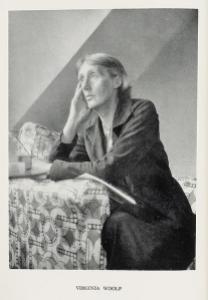by Tammy Delatorre
It was the first writing contest I had placed in. I was in the seventh grade. Our English teacher had forced us to write haikus and entered them—with a brief mention of this in class—into a statewide contest. On a field trip, we would find out the winners.
Cut to: We’re crowding into an auditorium, the good meal of a tuna sandwich and milk swimming in my belly. I was looking forward to a fun bus ride home, when a woman on stage announced I had won honorable mention for my haiku. Having heard my name, I looked around. People were waving me onstage. In a daze, I went up and accepted my ribbon.
For the most part, every writing contest I’ve placed in thereafter goes pretty much the same way. Bleary-eyed incredibility. I won. Are you sure?
Over the years, I have learned many lessons about entering writing contests, and chief among them is 1) you don’t have to believe you have the best submission out there to win. I know this from entering more than 100 contests and having placed more than 10 times, which brings me to another lesson: 1b) people who win contests typically submit a lot.
The next contest of note: I was a sophomore in college. There was a call to write an essay or poem about friendship. I was a poor student and needed the money. I had a best friend at the time (although I eventually lost her). She was my inspiration to write an embarrassingly bad poem that won $500. This brings me to another very important lesson: 2) the subject material should be extraordinarily important to the writer. I loved that best friend. I might have even been in love with her, the emotions so stirring it brought others to see the value in my piece.
One contest was local, sponsored by the Ventura County Writers Club. My short story placed third, won $120, and ran in the Ventura County Star. A writer I admired (Thaddeus Rutkowski) saw my story and asked to run it in the literary magazine, Many Mountains Moving, for which he served as editor. The lesson here: 3) size doesn’t matter; all types of contests can help in the advancement of a writing career. It was the first time I was called to read as a recognized author, not just part of a workshop or requirement for my MFA.
In another competition, River Styx Schlafly Beer Micro-Brew Micro-Fiction Contest, my piece, “Gifts from My Mother,” won a case of beer along with $1500. The story was less than 300 words. I’d been writing a lot of flash fiction and thinking, why am I wasting my time writing these short pieces? This brought me to another lesson, a variation on the size-doesn’t-matter theme: 4) short pieces have immense value. My roommate at the time loved beer; he drank the alcoholic portion of my winnings. I was happy to share.
I found out River Styx was hosting a reading in St. Louis, Missouri. I excitedly offered the editor to fly out from LA to participate. He said, but you’ll spend half your winnings to just come out here. I let him talk me out of it. In truth, I really wanted to go and had always regretted not doing it, so… 6) if you’re fortunate enough to win a contest, always find a way to perform a reading of your winning work—to honor the work, to celebrate your success, to tell the universe, Thank you! Thank you so much!
At that point in my writing, a friend of mine mentioned she’d met a great teacher who taught personal essay. I had no desire to write personal essay, but a couple other lessons that have helped in my overall development as a writer and eventually led to other contest successes were… 7) always be on the lookout for a good writing mentor, and 8) try not to limit the kind of writing you say you’re going to do, are willing to do, or are good or not good at… Try all kinds of writing. One type informs the other.
So I took the class. That personal essay mentor, Taffy Brodesser-Akner, told me a lot of things. Chief among them: 9) professional writers get paid to write, and in a side comment when reviewing one of my essays: 10) I think you’ve had an interesting life. For me, that was probably the most earth-shattering lesson of all. I didn’t know that people might find my life interesting. At the time, my life—full of family secrets—was something to hide, not publish.
I went home and searched my journals and notebooks. I’d been writing about my life all my life, so why not try to write something remarkably personal? I wrote “Out of the Swollen Sea,” which went on to be selected by author Cheryl Strayed as the winner of the 2015 Payton Prize and published on therumpus.net.
But when I first finished that essay, Taffy’s important words rang in my ears (see #9). If my mentor had inspired me to write a piece so personal, how could I let her down and submit it to venues that would pay me nil, nada, zilch? So I thought, how could I get paid for this piece? What did I think this piece was worth?
Those questions led me to a submission strategy and an experiment of sorts. If you’d like to learn about it, come to the February Submission Party hosted by Women Who Submit, Saturday, February 13 at the Libros Schmibros: Lending Library & Bookshop (1711 Mariachi Plaza de los Angele, Los Angeles, California 90033). I will be leading a discussion on successful strategies for submitting to writing contests and share my “Anatomy of a Submission.”
 Tammy Delatorre is a writer living in Los Angeles. In previous lives, she’s worked for a Nobel-prize-winning biochemist; helped to build and race a solar car that won the World Solar Challenge in Australia; and danced the hula despite being teased of stiff hips. Her essay, “Out of the Swollen Sea,” was selected by Cheryl Strayed as the winner of the 2015 Payton Prize, and her most recent essay, “Diving Lessons,” won the 2015 Slippery Elm Prose Contest. More of her stories and essays can be found on her website: www.tammydelatorre.com.
Tammy Delatorre is a writer living in Los Angeles. In previous lives, she’s worked for a Nobel-prize-winning biochemist; helped to build and race a solar car that won the World Solar Challenge in Australia; and danced the hula despite being teased of stiff hips. Her essay, “Out of the Swollen Sea,” was selected by Cheryl Strayed as the winner of the 2015 Payton Prize, and her most recent essay, “Diving Lessons,” won the 2015 Slippery Elm Prose Contest. More of her stories and essays can be found on her website: www.tammydelatorre.com.





 Tammy Delatorre is a writer living in Los Angeles. In previous lives, she’s worked for a Nobel-prize-winning biochemist; helped to build and race a solar car that won the World Solar Challenge in Australia; and danced the hula despite being teased of stiff hips. Her essay, “Out of the Swollen Sea,” was selected by Cheryl Strayed as the winner of the 2015 Payton Prize, and her most recent essay, “Diving Lessons,” won the 2015 Slippery Elm Prose Contest. More of her stories and essays can be found on her website:
Tammy Delatorre is a writer living in Los Angeles. In previous lives, she’s worked for a Nobel-prize-winning biochemist; helped to build and race a solar car that won the World Solar Challenge in Australia; and danced the hula despite being teased of stiff hips. Her essay, “Out of the Swollen Sea,” was selected by Cheryl Strayed as the winner of the 2015 Payton Prize, and her most recent essay, “Diving Lessons,” won the 2015 Slippery Elm Prose Contest. More of her stories and essays can be found on her website: 
 have value? This is a question all poets have asked themselves in the dark of night when they think no one is listening. Shakespeare killed his poets or likened them to lunatics in his plays and Virginia Woolf wrote in A Room of One’s Own, “[The world] does not ask people to write poems and novels and histories; it does not need them. It does not care…Naturally, it will not pay for what it does not want,” so how do we move forward when seemingly no one values our work?
have value? This is a question all poets have asked themselves in the dark of night when they think no one is listening. Shakespeare killed his poets or likened them to lunatics in his plays and Virginia Woolf wrote in A Room of One’s Own, “[The world] does not ask people to write poems and novels and histories; it does not need them. It does not care…Naturally, it will not pay for what it does not want,” so how do we move forward when seemingly no one values our work?